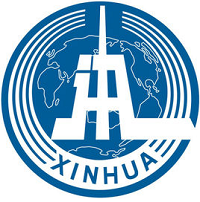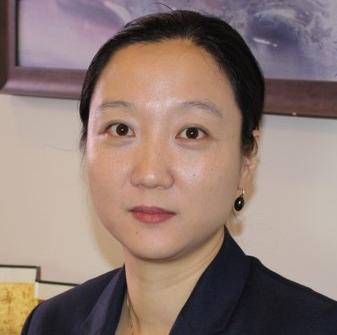The turmoil lasting for more than two years in the Middle East has led to some great changes in the overall situation of this region, with new conflicts breaking out one after another, traditional hot issues heating up constantly, and uncontrollable factors cropping up with each passing day. From December 7 to 9, the International Institute for of Strategic Studie(IISS)s and the Bahraini government co-sponsored the Manama Dialogue in Bahrain, bringing together politicians, experts and scholars from scores of countries to study the security situation and other hot issues in the Middle East.
The Syrian situation and the security issue in the Middle East topped in the agenda of this gathering. As an issue of particular concern for all the participants, the Syrian situation got into the center of hot discussion and debate. Should this issue be solved peacefully through dialogues between various parties concerned or through use of force? Should the Syrians be helped to decide their future and fortune through independent consultation, or should their internal rows be settled through external intervention? Widely divergent in opinion, the participants threw themselves into hot discussion, with those standing for further armament of the Syrian opposition to overthrow the Bashar regime by force gaining the upper edge.
In his speech at the opening of the dialogue, Al-Sabah, secretary general of the Syrian National Alliance of the Opposition and the Revolutionary Forces set up in Qatar’s Doha denounced the atrocities committed by the Bashar regime and called on all other countries in the world to recognize and support the alliance. When it came to the specific ways of support, however, even the participants taking sides with Sabah thought differently. Should it be additionally armed, in particular? With lessons drawn from past experiences still fresh in their mind, even the US participants adopted an attitude of caution. Having put in a huge amount of manpower and material resources in the war launched to topple the Saddam regime in Iraq, it has harvested nothing more than lasting turmoil and a new regime not so willing to take its orders. Its endless air strikes to wipe out the Gaddafi regime have brought it nothing better: dispersion of arms and death of its ambassador in Libya after the regime change.
At the gathering, US executive secretary of state Burns announced a US$250 million ‘non-fatal’ aid to the Syrian opposition, but urged at the same time that the international community should act in line with the communiqué from the foreign minister meeting called by the Syrian ‘Action Group’ in Geneva so as to achieve a true political transition in Syria and avoid a repetition of the Iraqi or even Somali tragedies in this Middle East country. Russia’s Middle East envoy, meanwhile, said in his speech that his country had no intention of protecting the current Syrian regime, and what his government stood for was employment of political means to materialize the above-mentioned communiqué and ultimately achieve a political transition in Syria.
When it comes to the issue of regional security in the Middle East, the strategic direction taken by the US will naturally get the attention from all people, especially the possible impact on this region from its strategic rebalancing after the eastward shift of its strategic focus. In his speech at the Manama Dialogue, former Australian Prime Minister Kevin Rudd said that the United States had come near two cliffs in the Middle East: a financial cliff, because it is financially contained from expanding or even maintaining its military presence in this region; and a political cliff, because its influence has come to be doubted by many countries in this region due to its inability to act in the midst of the conflict between Palestine and Israel and its indecision on the Syrian issue. In their speeches at the gathering, some Arabian participants questioned the US motive to initiate the so-called Arab Spring, doubting whether it was engineered to promote democratic transformation of this region or drive for its own interests. They even blamed the US for its irresponsible sneak from Iraq and Libya after causing all the disorder and disturbance in these two countries. In response, Bernstein said that the Arab Spring has brought the US both opportunities and challenges, and that it had to get involved in regional affairs in a flexible and cautious manner for the purpose of meeting all kinds of challenges. He assured emphatically that instead of leaving the Middle East, the US would continue efforts to foster its leadership over this region after the revolutions.
US senator McCain and the chief of the US Central Command also participated in the dialogue, a fact that indicated, from another angle, the important position of the Middle East in the global strategy of the United States which, after all, has so many strategic interests and unshirkable responsibilities in this region.
Whether or not the situation in the Middle East will hold the US pace of return to the Asia-Pacific region and what role will be played by China in the Middle East were also topics of close concern to the participants. As a representative from China, this author made a keynote speech at the gathering to articulate China’s positive stand and viewpoint about achievement of peace and stability in the Middle East; to brief the participants on China’s efforts so far to bring the Syrian government and its opposition to a ceasefire, to stop violence, and to speed up the political transition of their country; and to warn against the possible disasters and spillover effects from attempts to achieve the political transition by force.
Having lived and worked in Syria for more than four years, this author has got very sweet memories of this country. Each time when I hear of any wounds it suffers from armed conflicts, I would feel very badly and sincerely pray for its coming to a peaceful transition. For all the changes so far in the balance of power between the country’s conflicting parties due to the military advances recorded by the Syrian opposition with external support, the Syrian government still keeps a fairly strong armed force. Any attempt to solve the Syrian crisis through armed wrangling may only result, therefore, in destruction of both sides and a too formidable cost for the political transition. Given the situation, even Maath al-Khatib, leader of the Syrian National Coalition, said that it would take a quite long time for the war to come to an end. It was also due to the current Syrian situation that China’s proposal was widely applauded and commonly hailed as being ‘impartial’ and ‘smart.’ In his speech at the gathering, Bahraini crown prince Salman emphasized that ‘every effort should be tried to avoid violence because violence will never be a solution of any issue,’ a voice speaking the stand of all the Arabian nations and echoing China’s viewpoint as well.
With the spillover effects of the Syrian issue becoming all the more apparent, the security situation in the Middle East and in the world as a whole has been put at great stake. Devoted to promotion of stability in the Middle East and acceleration of its peace process, China’s role has aroused close attention from all parties concerned and been commonly recognized as a positive energy.
Wu Sike is a member of the Foreign Affairs Committee of the Chinese People’s Political Consultative Conference and member of the Foreign Policy Advisory Committee of the Ministry of Foreign Affairs.


